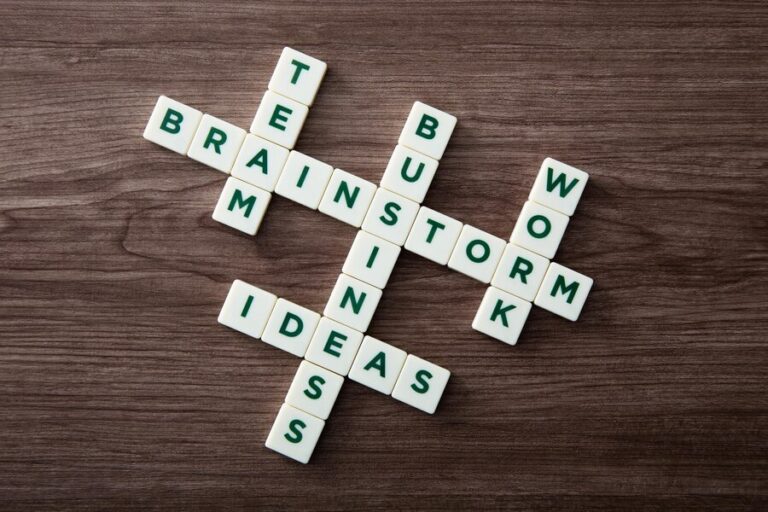Riddles have been a source of entertainment and mental stimulation for centuries. But they’re more than just a fun activity to pass the time—they hold the power to sharpen critical thinking, enhance problem-solving skills, and bring a sense of achievement when you solve them. If you’re a puzzle enthusiast, parent, or educator, this post will unlock the magic of riddles, their rich history, and how they can supercharge cognitive skills for people of all ages.
From ancient times to modern classrooms, riddles have proven their worth as both an entertaining pastime and an educational tool. This blog explores the art of riddles—from their cultural significance to their practical benefits—and offers tips to integrate the joy of riddling into your daily routine. Plus, find examples of classic and modern riddles to test your wits along the way.
A Brief History of Riddles and Why They Matter
The origin of riddles can be traced back to ancient civilizations, where they were often tied to storytelling, mythology, and oral traditions. For example, in Greek mythology, the Sphinx posed a famous riddle to travelers, asking, “What walks on four legs in the morning, two legs at noon, and three legs in the evening?” (Answer: A human, as they crawl as babies, walk as adults, and use a cane in old age).*
Throughout history, riddles have served as more than mere entertainment—they’ve been tools for teaching and cultural expression. Whether shared around campfires, scrawled on ancient manuscripts, or embedded in Shakespearean plays, riddles have fostered critical thinking and creativity, connecting people across centuries and cultures.
Today, riddles still captivate us, serving as a fun way to challenge the brain and spark conversations. But they’re also highly relevant in modern learning environments, where they are increasingly used to improve problem-solving skills and mental agility.
Why Riddles Are Powerful Educational Tools
Teaching through riddles? Absolutely! Riddles are useful educational tools for learners of all ages. They make abstract concepts concrete, encourage logical reasoning, and foster creativity by presenting problems in unique ways.
Here’s how riddles can benefit different age groups:
For Kids
- Boosts problem-solving skills through playful challenges.
- Improves vocabulary as kids learn to understand wordplay and interpret clues.
- Encourages patience and persistence by teaching them that reaching the solution takes effort and creativity.
For Teens
- Enhances critical thinking by encouraging them to analyze patterns and alternate interpretations.
- Prepares for academic tests, where lateral thinking often plays a major role.
- Provides stress relief as a break from rigorous studies.
For Adults
- Engages the brain and helps develop cognitive resilience, which may even delay cognitive decline in older age.
- Offers a way to tackle daily stress through fun and lighthearted challenges.
- Fosters team-building in workplaces, as riddles make great icebreakers and collaboration exercises.
No matter your age, riddles help expand your ability to think critically and connect diverse ideas—skills crucial in every aspect of life.
Classic and Modern Riddles to Test Your Wits
Whether you’re searching for riddles to challenge yourself or to keep your friends and family entertained, here are a few examples categorized by difficulty level:
Easy Riddles
- What has to be broken before you can use it?
(Answer: An egg.)
- I’m tall when I’m young and short when I’m old. What am I?
(Answer: A candle.)
Intermediate Riddles
- The more you take, the more you leave behind. What am I?
(Answer: Footsteps.)
- I speak without a mouth and hear without ears. I have nobody, but I come alive with wind. What am I?
(Answer: An echo.)
Hard Riddles
- I am not alive, but I can grow. I don’t have lungs, but I need air. What am I?
(Answer: Fire.)
- I have keys but no locks. I can open spaces but not doors. What am I?
(Answer: A keyboard.)
Feeling inspired yet? Share these riddles with friends, or try solving them together for added fun!
The Benefits of Daily Riddling
- Cognitive Development: Regularly engaging with riddles improves memory, logical reasoning, and mental flexibility. It’s like a workout for your brain!
- Stress Relief: Focusing on a riddle gives your mind a break from daily pressures, much like meditation.
- Improved Focus: Riddles demand attention to detail and careful thought, boosting your ability to concentrate.
- Strengthened Bonds: Solving riddles as a family, classroom, or team encourages collaboration and enhances relationships.
Tips for Creating Original Riddles (And Making Riddles a Habit)
Why not take your love for riddles a step further and create some of your own? Here are tips for crafting original challenges:
- Start simple by choosing something relatable, like an object or animal, as the answer.
- Use wordplay and rhyming to make your riddle more engaging.
- Challenge assumptions by including clues that misdirect without making the riddle impossible.
- Collaborate with friends or family for feedback and inspiration.
To integrate riddles into your daily life, consider these ideas:
- Introduce a riddle of the day at the breakfast table or in the classroom.
- Use riddles as a team-building exercise during meetings or workshops.
- Follow puzzle apps or online riddle communities to never run out of fresh challenges.
Join the Riddling Movement
Riddles are more than just brain teasers—they’re an opportunity to train your mind, bond with loved ones, and have fun while doing it. Add them to your daily routine and experience the cognitive and emotional benefits firsthand.
Why wait? Take part in our Riddle of the Day Challenge and share your favorite riddles or answers in the comments below. Together, we’ll keep the ancient art of riddles alive and well for generations to come!
